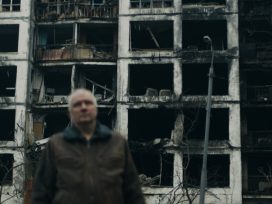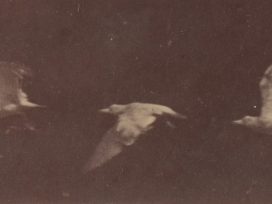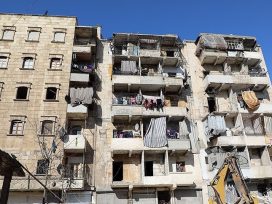Unspeakable war
The war in Ukraine is said to be the most documented war in history. But can Ukrainians ever convey their true experiences to outsiders? And can outsiders ever fully empathize? Bleak reflections of a Ukrainian cultural diplomat.
In the summer of 2014, shortly after the Russian war against Ukraine started, photographer Viktor Marushchenko recruited a new group to study at his photography school in Kyiv. One of the tasks they were given was to create a series of photographs capturing the signs of war in everyday life in Kyiv. It seemed like any routine task for a documentary photographer or reporter, and it was not difficult to find visual metaphors of war in the capital of a warring country. Yet I recall how confused the students were when the task kept slipping out of their hands. Ultimately, Viktor discreetly but mercilessly criticized their work for its creative helplessness and their overly formalistic understanding of the task they’d been given.
Eight years on, the war in Ukraine has escalated into a full-scale conflict, devastating every corner of the country, causing the deaths of tens of thousands, and leaving its mark on the world. Ukraine’s tragedy, reflected in the work of photographers, soldiers, human rights defenders, journalists, politicians, philosophers, and public activists, has resulted in countless images, metaphors, memes, documentaries, and artwork for posterity. Many are calling it the most documented war in history.
But despite this abundance of media, can we honestly say we understand this war? Can we accurately convey our experiences and thoughts to others, including future generations, enemies, and allies? Even with all the means of expression at our disposal, is it possible to achieve Viktor Marushchenko’s goal of truly capturing the essence of war?
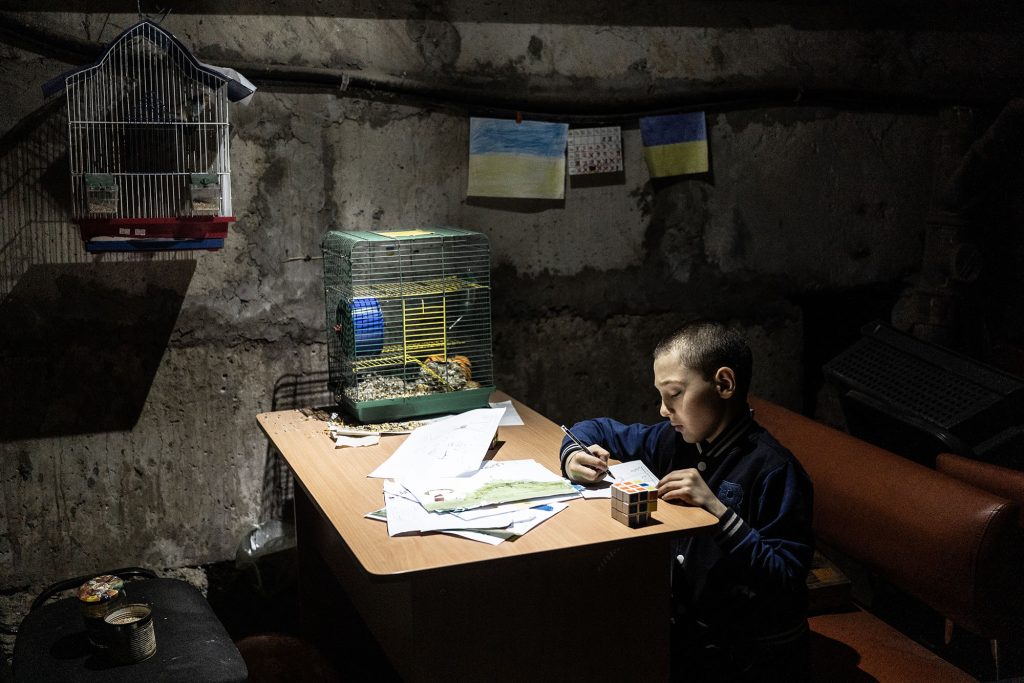
Tymophey, 8, painting in the basement of the kindergarden. The village of Kutuzivka was liberated by Ukrainian army on 27 April 2022. Kutuzivka was heavily damaged during the fighting and people were still living underground in fear of future shelling. Photo by Serhii Korovainyi.
When I think of Mariupol, my consciousness is torn apart, unable to comprehend the terrible fate that befell this city and its people. The names ‘Bucha’ and ‘Izyum’ also contain an abyss woven from photos, tears, and comments, not to mention the abnormal normality of life that continues in our de-occupied cities. The new language of war, which includes terms like ‘arrival’, ‘forefront’ and ‘cotton’, is not universally understood. This is because the experience of Russian missiles differs for someone living in Kharkiv or Mykolaiv, where a missile might ‘arrive’ in their yard, compared to an air defense system operator or someone living in a relatively safe region.
From afar, we loudly rejoice at the news of more ‘cotton’ in Crimea or Melitopol without fully grasping the daily threat the local pro-Ukrainian resistance movement exposes itself to. When my relative’s son, a military volunteer, returned home for a week, he could only cry about what he saw in the east, tearing this blackness out of himself and hurling insults at his relatives, reduced to primitive words and irreversible otherness. And what about people who, fortunately, escaped those horrors and now live a relatively peaceful life? What is their truth and experience of war?
Communicating with foreigners can make finding the correct language even more challenging, and the argument that one does not have to experience something to empathize with it is no longer compelling. Many Ukrainian cultural figures, diplomats, and journalists are all too familiar with this feeling of helplessness. We speak, inquire, and persuade, but our foreign interlocutors do not have the capacity to absorb this information because it is unprecedented for them.
Even basic facts are met with amazement, like how there are currently no flights over the territory of Ukraine, women give birth in bomb shelters, and people live and work in cities without electricity. Cultural diplomacy offers a glimmer of hope through artistic dialogues, but this does not necessarily ensure universal understanding.
According to Salman Akhtar, an Indian-American psychoanalyst and professor at the Medical College of Philadelphia, how reality is described and understood will always vary depending on the individual and their intention. He asserts that there are seven types of truth: physical, historical, narrative, poetic, manufactured, judicial, and existential.
The truth about Russia’s war in Ukraine is complex and multi-faceted. Its judicial aspect involves human rights defenders, security forces, and volunteers collecting and documenting testimonies of war crimes, torture, murder, and theft. Their goal is to hold Russia accountable in an international tribunal and to demonstrate that Russia has committed the ultimate crime of genocide against Ukrainians. The narrative dimension encompasses a set of values and virtues, such as courage, ingenuity, resilience, humor, freedom, maturity, and mutual aid, which are now associated with Ukraine in the world and should form the foundation of our strategic communications going forward.
All this starkly contrasts to the ‘Looking Glass’, a distorted and manufactured anti-truth fueled by disinformation and originating from Russian society. It is important to note that the existential experience is the most challenging to comprehend since it is always personal and unique.
While these truths may attempt to describe certain aspects of a larger whole, they can never fully capture it. Crises, historical divisions and border states unveil a world that can never be entirely known or understood. This experience is impossible to transfer to others or even convey through the most ingenious works of art. Indeed, such limitations mark the threshold beyond which the ineffable begins.
Ukraine is experiencing a tremendous and unspeakable trauma that will remain with us for life. The current war will only be our tragedy. Even with sincere sympathizers and allies, we are doomed to existential loneliness living through this misery, just like Syrians, Chechens, Georgians, Afghans, and Bosnians. The avant-garde was apparently born from a similar trauma at the beginning of the twentieth century when classical art could no longer describe and interpret our strange new world–a new visual language made it possible for artists to expand the known boundaries of this world but not to comprehend its totality.
Someday, the last surviving witness of Russia’s war in Ukraine will pass away, and the conflict will become a myth, preserved through multiple truths, countless photos, writings, family tales, political slogans, video games, monuments, cemeteries, and the landscapes of cities and villages – those that were destroyed, rebuilt, abandoned, and created anew. Until that day arrives, we will continue to speak extensively about this war, and it will remain the primary topic of conversation for quite some time.
But the further away we move from February 24, 2022, the more we will dare to discuss other issues and the closer our culture will come to processing what has happened to us. As a result, the war will become more obscure and comprehensible, simpler and more complex. When we share our experiences, we inevitably rewrite them, correcting the past and changing our memories, ourselves and our listeners. We will forever etch the palimpsest of this war in our imperfect language, with our thoughts and words being all we have left to find unity and togetherness, to stitch together our broken world.
This article is part of Meridian Czernowitz’s series State of War, an online anthology of essays by Ukrainian intellectuals about the Russian invasion of Ukraine. One hundred Ukrainian authors will recount their own experiences, impressions, observations and feelings in one hundred texts. The creation of the anthology takes place within the framework of the USAID-backed Deepening the internal cultural dialogue in Ukraine project.
Published 24 February 2023
Original in Ukrainian
Translated by
Kate Tsurkan, Yulia Lyubka
First published by Meridian Czernowitz
© Meridian Czernowitz / Volodymyr Sheiko
PDF/PRINTIn collaboration with
In focal points
Newsletter
Subscribe to know what’s worth thinking about.
Related Articles
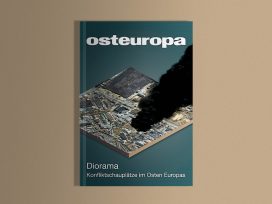
Flooded earth
Osteuropa 1–2/2023
What the destruction of the Kakhovka Dam means for water supplies, agriculture and industry in south-east Ukraine. Also: Azerbaijan’s ethnic cleansing in Nagorno-Karabakh; and a profile of imprisoned Russian oppositionist Vladimir Kara-Murza.
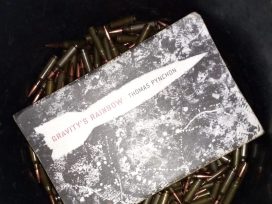
Spilne author Evheny Osievsky became a soldier in the Russo-Ukrainian war. Gwara Media editor-in-chief Olena Myhashko pays her respects to a colleague who put his research aside to go into battle, highlighting the weight of personal bereavement and Ukraine’s ongoing loss.

